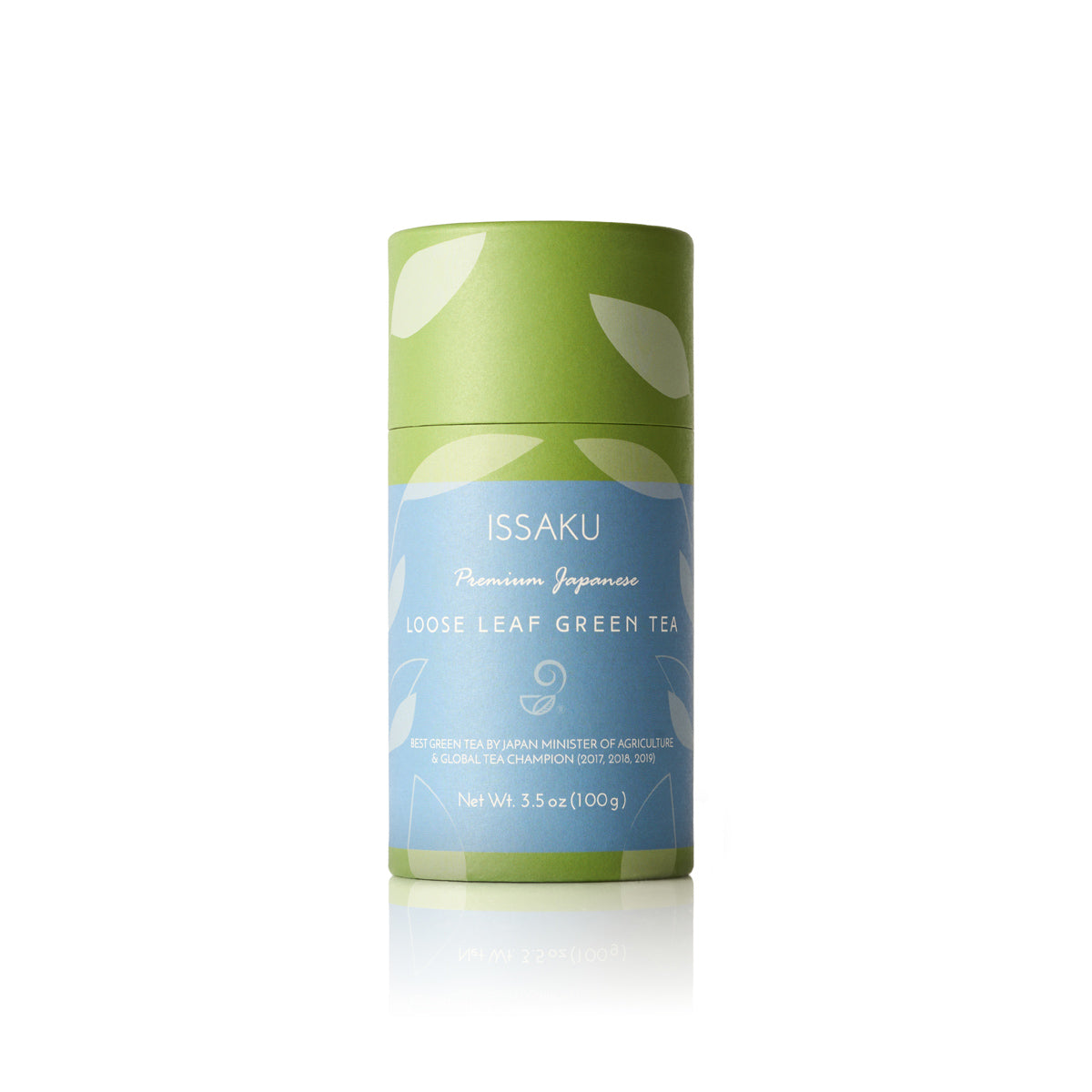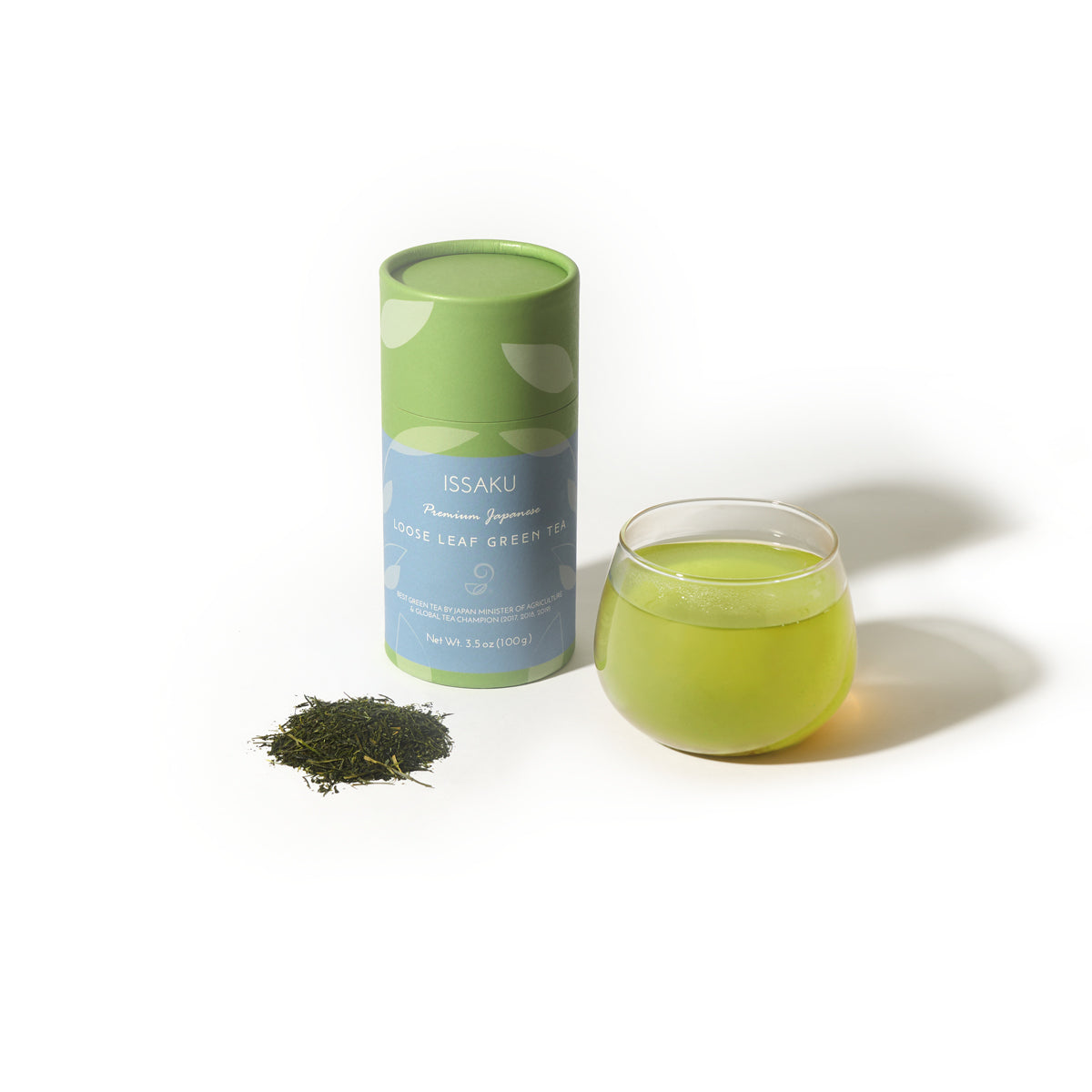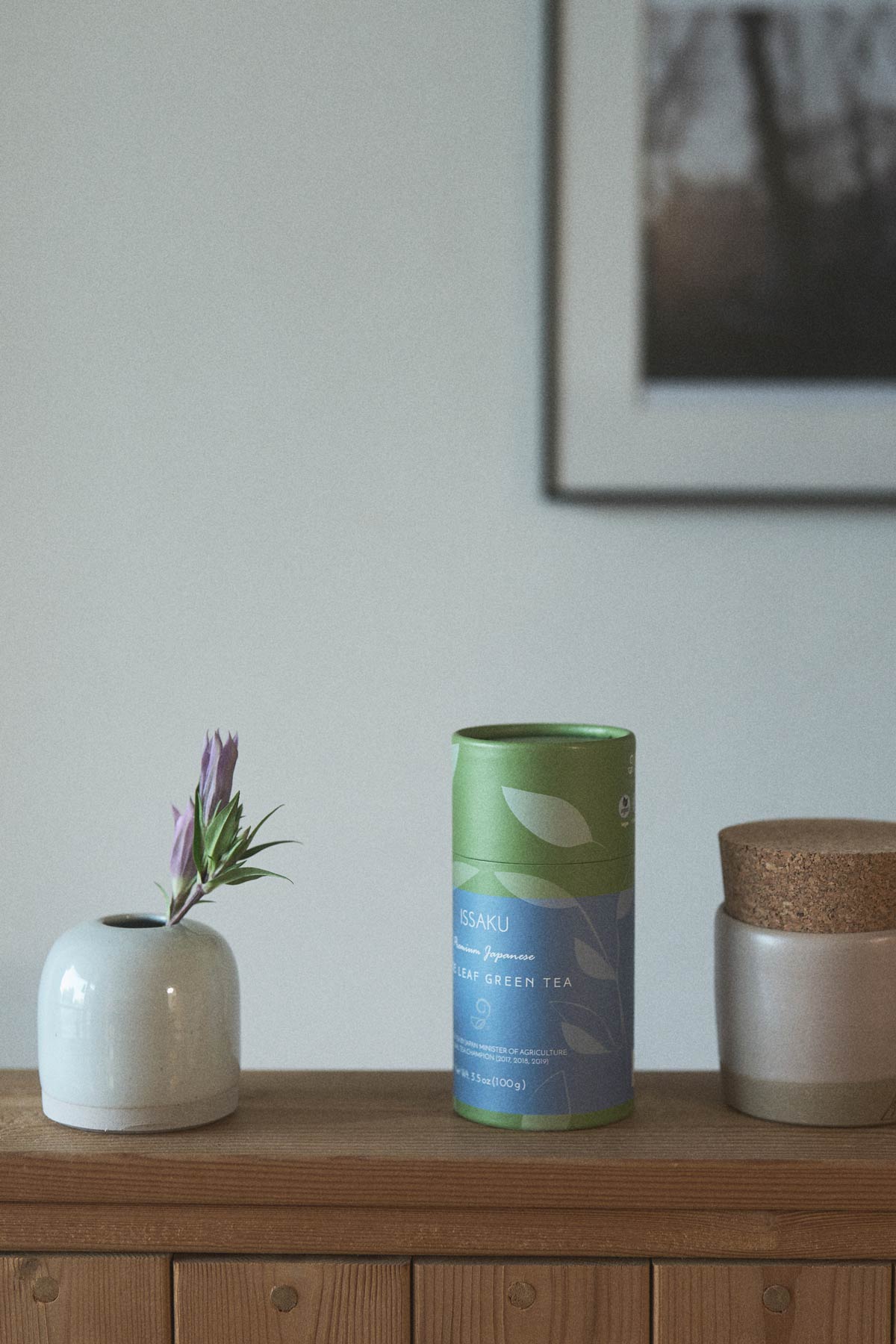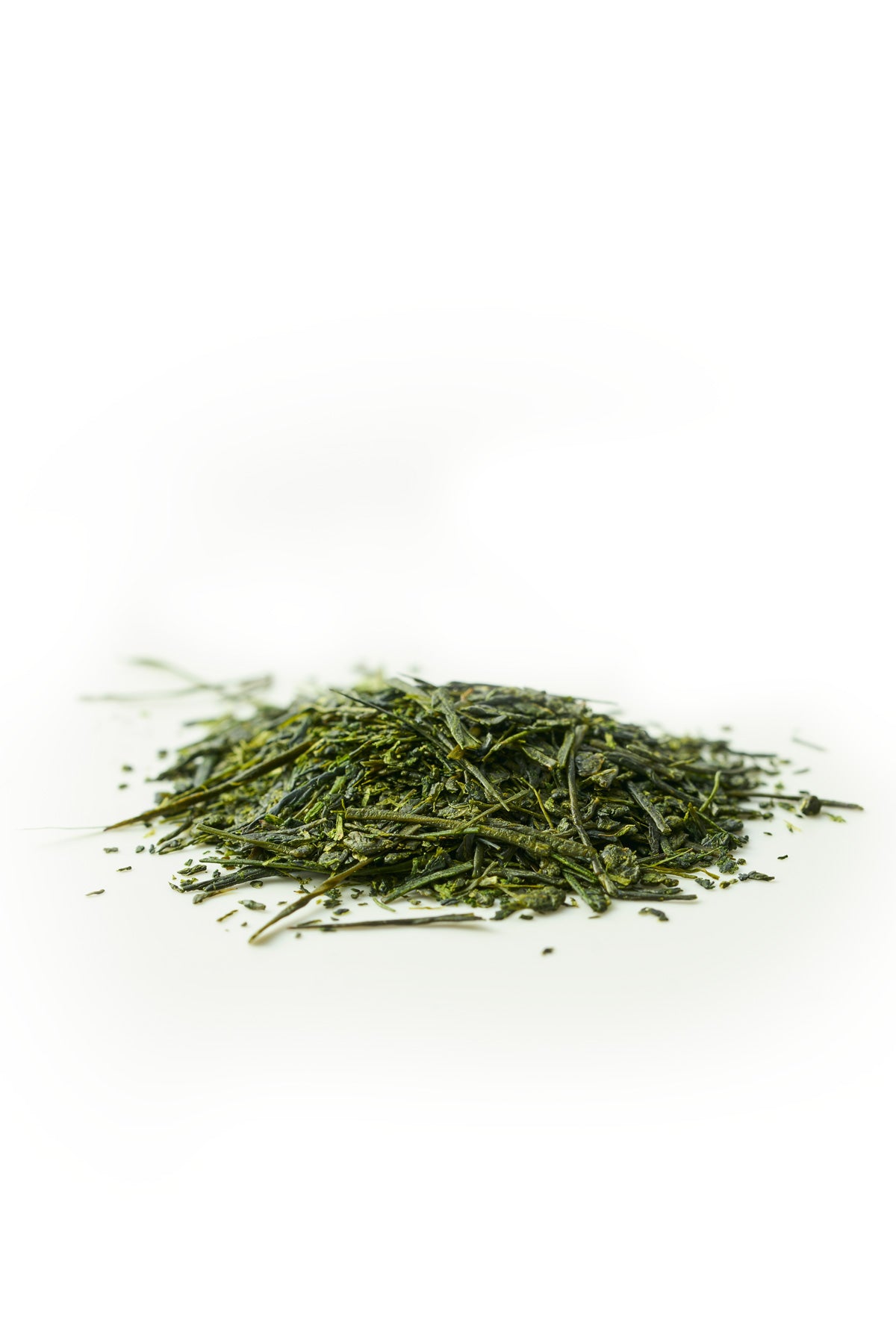You may have heard about a number of green tea health benefits in the past. But do you know the science behind these claims? Or how do you reap these benefits for yourself? Don't miss the rest of this post, where you'll get all of those answers and more!
Japanese green tea has been known to have major health benefits for many years. Many medical experts believe it increases stamina, sharpens the mind, and can even extend the lifespan. It has been proven to aid the immune system, have fat-burning properties, and help fight off disease. But now, newer health studies have shown evidence that Japanese green tea might actually prevent or reduce the effects of certain types of cancer.
In addition to these findings, researchers are also exploring how green tea influences cell regeneration and DNA protection. Some studies suggest that its powerful antioxidants not only help neutralize harmful free radicals but also repair oxidative damage at the cellular level. This means that regular consumption of green tea could play a significant role in slowing the aging process and improving overall resilience against chronic illnesses beyond cancer, such as cardiovascular disease and neurodegenerative conditions like Alzheimer’s.
Green Tea Health Benefits
Green tea can protect your body from harmful fats and aid in digestion. It can also protect the brain and liver and promote healthy gums.
Other health benefits of green tea include being known to reduce blood pressure, defend against diabetes, reduce the chance of a heart attack, and lower cholesterol levels. It's also high in antioxidants. As a result, it's becoming increasingly evident that green tea seems to inhibit the growth of certain types of cancer.
Beyond these widely recognized benefits, green tea is also associated with improved metabolic health. Regular consumption has been linked to better blood sugar regulation, which can help prevent insulin resistance—a key factor in the development of type 2 diabetes. Additionally, the catechins in green tea may support weight management by boosting metabolism and enhancing fat oxidation during physical activity, making it a valuable aid for those pursuing a healthy lifestyle.
Emerging research further suggests that green tea contributes to better mental well-being. Its unique combination of caffeine and L-Theanine promotes focus and calm alertness without the jittery effects often caused by coffee. Studies also indicate that long-term green tea drinkers may experience improved memory retention and cognitive function, potentially lowering the risk of neurodegenerative diseases such as dementia and Parkinson’s.
Green Tea's Cancer-Fighting Properties
Tea is the most popular drink on Earth, next to water. In around 80% of the world, most people prefer to drink black tea rather than green tea. This makes comparative studies fairly simple to conduct on a rudimentary level.
In Japan, green tea is very popular. It's part of the culture there. The World Health Organization has reported that Americans are three times more likely to get breast cancer than people in Japan. It is also consumed in China and other Asian countries, which also have much lower rates of breast and prostate cancer.
Japan has an overall low rate of cancer, even though smoking is very popular and has traditionally been linked to lung cancer. These findings suggest that green tea seems to have benefited the health of entire countries. And yes, even those high in pollution and smoking! The fact that most people in Japan and China are thin suggests that the fat-burning agents in green tea are potent.
Additionally, researchers believe that lifestyle and dietary habits, including the frequent consumption of green tea, create a protective environment within the body. The bioactive compounds in green tea are thought to reduce inflammation, inhibit tumor formation, and block the spread of cancer cells. This synergistic effect, combined with balanced Asian diets and lower obesity rates, strengthens the theory that green tea plays a critical role in reducing cancer prevalence across these regions.
(Read more about Japanese Green Tea and Diet in this article next.)
The Science of Green Tea Health Benefits
There are chemicals in Japanese green tea known as polyphenols. There is evidence to suggest these agents block certain proteins that help cancer spread and grow. The two proteins most affected are the vascular endothelial and hepatocyte growth factors. Interestingly, both of these are main factors in cancer promotion.
There is also evidence that specific green tea polyphenols like EGCG fight enzymes that are necessary for cancer to grow. Even better, they also seem to kill other cancer cells without harming the rest of the body or interior organs.
EGCG is one of the antioxidants that are similar to Vitamin E and Vitamin C, except that it's much more powerful. There was a study done at the University of Kansas that proved that it is twice as strong as the cancer-killing resveratrol. Resveratrol is found in purple grapes, and it has been a staple of cancer-fighting diets for years.
EGCG works in concert with an amino acid called L-Theanine. L-Theanine is the agent in green tea that makes you feel relaxed and can put you in an alert, calm state. It's also known to enhance concentration while reducing feelings of stress. Thus, it's very popular among students, lawyers, and people who work in high-stress environments.
But L-Theanine is not commonly found in most foods or drinks. It can only be obtained through black and green tea.
Recent scientific reviews have also highlighted the potential of green tea compounds to enhance the body’s natural detoxification processes. Polyphenols are thought to activate certain enzymes in the liver that aid in breaking down toxins and carcinogens, making it easier for the body to eliminate harmful substances. This detoxifying effect, combined with its ability to reduce oxidative stress, contributes to overall cancer prevention and improved long-term health.
(Read more about this topic in my other article, - Science Behind Why Japanese Green Tea is Good for Health, or more about EGCG and polyphenols.)
Green Tea Treatments and Research Findings
In a study from the Louisiana State University Health Sciences Center involving patients with prostate cancer, it was shown that green tea seems to help fight the disease in the early stages before it has spread. The green tea seemed to reduce the growth rate of tumors to a noticeable degree. It seems to be most effective in the early stages of prostate, breast, and lung cancer.
The men who participated in the prostate cancer study were asked to drink six cups of green tea each day. Those who did so were found to have much lower levels of prostate-specific antigen, which is an agent that causes tumors to grow.
In a study at the Columbia University Medical Center, women with breast cancer were given green tea polyphenols. These chemicals actually lowered the rate of tumor growth over a period of two months. As the study went on, the scientists tried to determine the optimum amount of tea for maximum beneficial effect. They believed that 6–8 cups of green tea per day achieved optimal results.
Additional clinical trials have explored how green tea extract supplements can complement conventional cancer treatments. Some findings suggest that polyphenols enhance the effectiveness of chemotherapy and radiation therapy by sensitizing cancer cells to treatment while simultaneously protecting healthy cells from damage. This dual action not only improves therapeutic outcomes but may also help reduce common treatment side effects such as fatigue and inflammation.
Moreover, population-based studies in countries with high green tea consumption reveal a lower recurrence rate of certain cancers among survivors who consistently drink green tea post-treatment. These long-term observations provide compelling evidence that incorporating green tea into daily habits may support recovery and serve as a preventive measure against future tumor development.
How Much Green Tea is Safe to Drink Each Day?
Too much of anything is bad for you. The question is, How much green tea is safe to drink? Of course, tea contains caffeine, which is linked to insomnia, headaches, nausea, and more.
Physicians agree that adults can consume up to 400 mg of green tea per day. That's the equivalent of eight cups of green tea, and that's a conservative estimate. The true number could be as high as 16 cups per day. In most cases, the increase in caffeine intake does not lead to any substantial issues, partly because green tea is much lower in caffeine than black tea and other types of drinks.
Japanese green tea is also a good choice because it's lower in fluoride than other types of tea. In Japan, there is less fluoride in the soil than in other places, such as China. The medical community has found in recent years that fluoride is unhealthy when consumed in large doses, and intake needs to be monitored carefully. Many people have it in their drinking water, meaning that tea drinkers are getting a double dose.
It’s also important to consider individual tolerance levels when deciding how much green tea to drink. Some people may be more sensitive to caffeine and experience restlessness or digestive discomfort after only a few cups. In such cases, starting with 2–3 cups per day and gradually increasing intake allows the body to adapt while still benefiting from its antioxidants and cancer-fighting properties.
For those who wish to enjoy the benefits without the risk of excessive caffeine, decaffeinated green tea and green tea extracts are viable alternatives. These products retain the majority of polyphenols and EGCG content while minimizing caffeine intake, making them suitable for individuals with medical conditions or pregnant women who need to limit stimulant consumption.
The Best Way to Consume Green Tea
To get the maximum health benefits from green tea, you should know that the form it comes in is important. Many believe that loose-leaf tea is the most beneficial form of green tea. To make it, you can put tea leaves in a teapot and add boiling water. Let it steep for a minute or two. And then strain out the leaves while you pour it into the cup.
You could also use a tea maker that has built-in filters, or you could try using a tea filter, which is a tea bag that you put leaves into yourself. Some people prefer to use a tea ball. (You can download our brewing technique book to learn more by clicking here.)
Green tea can be part of a plan to prevent or fight cancer. It also promotes health in a staggering variety of ways! Including green tea in your diet is a great idea for anyone hoping to improve or maintain their health.
For enhanced flavor and nutrient absorption, experts recommend avoiding boiling water directly on the leaves, as excessively high temperatures can destroy delicate antioxidants like EGCG. Instead, let the water cool slightly to around 80°C (175°F) before steeping. Adding a squeeze of lemon can further boost the tea’s antioxidant activity, making it even more effective in supporting immune function and cancer prevention.
Another popular approach is to incorporate matcha, a powdered form of green tea made from whole leaves, into your diet. Matcha provides a more concentrated dose of nutrients since you consume the entire leaf rather than just the infusion. This makes it particularly rich in antioxidants and amino acids, offering a stronger, longer-lasting health benefit compared to traditional brewed tea.
Conclusion
Green tea stands out as more than just a soothing beverage—it’s a powerful ally in promoting overall wellness and potentially preventing serious diseases, including various forms of cancer. Backed by decades of research, its rich antioxidants, cancer-fighting polyphenols, and calming amino acids strengthen the immune system, enhance metabolism, and protect against cell damage. Whether enjoyed as a daily drink, incorporated into treatment plans, or consumed as matcha for maximum potency, adding green tea to your lifestyle is a simple yet impactful step toward long-term health and vitality.
The following product (Issaku) is very popular among cancer patients due to its natural sweet taste and high content of the cancer-fighting elements mentioned above. Click here to buy Issaku Japanese Green Tea and learn more about it!
This post about the health benefits of green tea was first published in 2016. It was updated in 2025 just for you.
Get Free Bonus Books

Sign up for free to the Green Tea Club to get advice and exclusive articles about how to choose Japanese Tea, and tips, tricks, and recipes for enjoying Japanese tea.
About the author
Kei Nishida
Author, CEO Dream of Japan
Certification: PMP, BS in Computer Science
Education: Western Washington University
Kei Nishida is a passionate Japanese green tea connoisseur, writer, and the founder and CEO of Japanese Green Tea Co., a Dream of Japan Company.
Driven by a deep desire to share the rich flavors of his homeland, he established the only company that sources premium tea grown in nutrient-rich sugarcane soil—earning multiple Global Tea Champion awards.
Expanding his mission of introducing Japan’s finest to the world, Kei pioneered the launch of the first-ever Sumiyaki charcoal-roasted coffee through Japanese Coffee Co. He also brought the artistry of traditional Japanese craftsmanship to the global market by making katana-style handmade knives—crafted by a renowned katana maker—available outside Japan for the first time through Japanese Knife Co.
Kei’s journey continues as he uncovers and shares Japan’s hidden treasures with the world.
Learn more about Kei











Nice article. Thanks for the information.